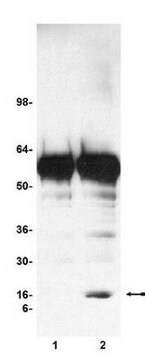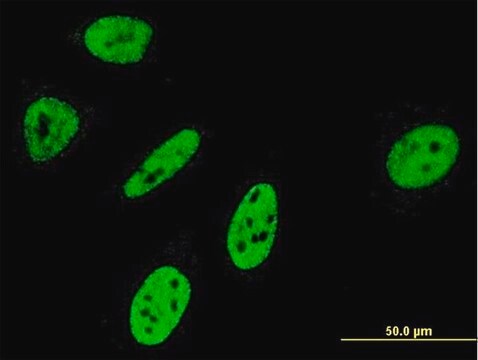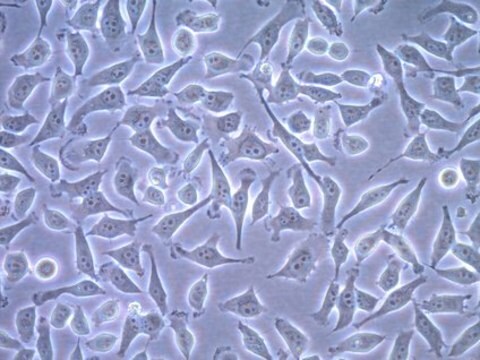05-1317
Anti-SUZ12 Antibody, clone 2AO9
clone 2AO9, from mouse
Synonym(s):
ChET 9 protein, Chromatin precipitated E2F target 9 protein, Joined to JAZF1 protein, Suppressor of zeste 12 protein homolog, joined to JAZF1, suppressor of zeste 12 homolog (Drosophila)
About This Item
Recommended Products
biological source
mouse
Quality Level
antibody form
purified immunoglobulin
antibody product type
primary antibodies
clone
2AO9, monoclonal
species reactivity
human
species reactivity (predicted by homology)
rabbit (based on 100% sequence homology)
technique(s)
ChIP: suitable
immunocytochemistry: suitable
immunoprecipitation (IP): suitable
isotype
IgG
NCBI accession no.
UniProt accession no.
shipped in
wet ice
target post-translational modification
unmodified
Gene Information
human ... SUZ12(23512)
General description
Specificity
Immunogen
Application
Chromatin Immunoprecipitation Analysis: A previous lot was used by an independent laboratory in ChiP. Pasini, D., et al. (2007). Molecular and Cellular Biology. 27(10):3769–3779.
Epigenetics & Nuclear Function
Chromatin Biology
Quality
Immunoprecipitation Analysis: 10 µg/mL of this antibody immunoprecipitated SUZ12 in HeLa cells.
Target description
Physical form
Storage and Stability
Analysis Note
HeLa cell lysate
Other Notes
Disclaimer
Not finding the right product?
Try our Product Selector Tool.
Storage Class Code
12 - Non Combustible Liquids
WGK
WGK 1
Flash Point(F)
Not applicable
Flash Point(C)
Not applicable
Certificates of Analysis (COA)
Search for Certificates of Analysis (COA) by entering the products Lot/Batch Number. Lot and Batch Numbers can be found on a product’s label following the words ‘Lot’ or ‘Batch’.
Already Own This Product?
Find documentation for the products that you have recently purchased in the Document Library.
Our team of scientists has experience in all areas of research including Life Science, Material Science, Chemical Synthesis, Chromatography, Analytical and many others.
Contact Technical Service







